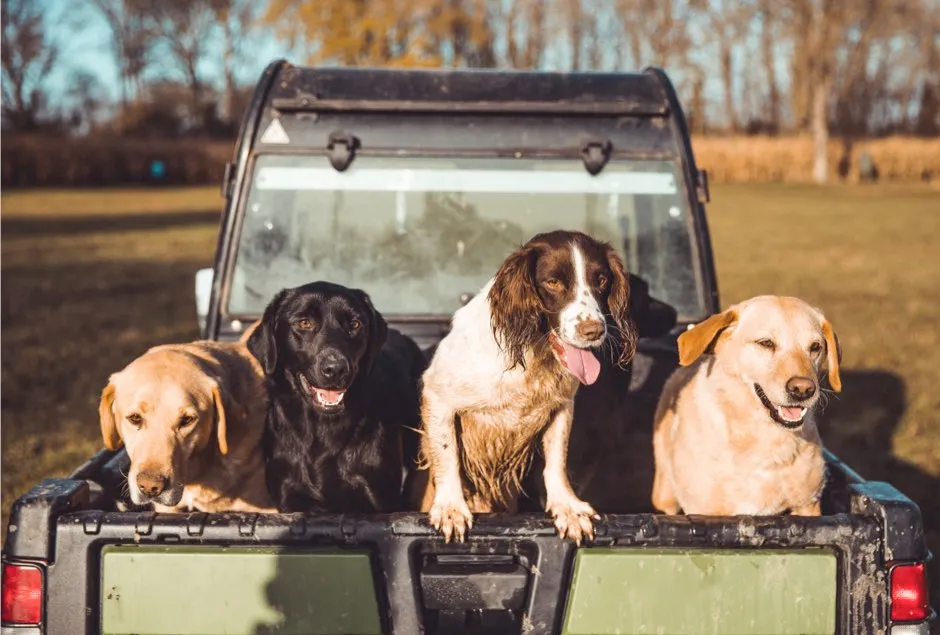Flat-faced dogs such as pugs and bulldogs have a higher risk of developing heatstroke, a new study suggests.
Also known as brachycephalic dogs, these breeds have increased in popularity in recent years, with celebrities including David Beckham and Reese Witherspoon leading the trend.
However, the researchers say that the rising demand for these dogs is concerning, particularly as climate change increases the severity and frequency of heatwaves.
They believe increasing numbers of these breeds combined with rising UK temperatures could lead to even more dogs suffering from the potentially fatal condition in the future.

Based on their findings, published in the journal Scientific Reports, the scientists said vets should weigh up the potential risk of heatstroke when advising owners on breed selection.
Emily Hall, lead researcher and a veterinary surgeon at Nottingham Trent University’s School of Animal, Rural and Environmental Sciences, said: “It’s likely that brachycephalic dogs overheat due to their intrinsically ineffective cooling mechanisms.
“Dogs pant to cool down – without a nose, panting is simply less effective. In fact, brachycephalic dogs may even generate more heat simply gasping to breathe than they lose by panting.”
Read more about dogs:
- Dogs go through a stroppy teenage phase too
- Don't over-indulge your dogs while you self-isolate, scientists warn
- Your two-year-old dog is 40 in human years, not 14
A team of experts at the Nottingham Trent University and the Royal Veterinary College analysed anonymised electronic records of more than 900,000 dogs across the UK, in what is thought to be the largest study of its kind.
They identified nearly 400 confirmed cases of heat-related illnesses among dogs under veterinary care but believe actual numbers may be higher as many affected with heatstroke may not be taken to see the vet.
The experts used Labrador retriever, a popular breed in the UK, as the “base” comparison breed to identify dogs at most risk from heat-related illnesses.

They found bulldogs were 14 times more likely to develop heatstroke than Labs, while French bulldogs were found to be six times more likely and pugs were twice more likely to develop the condition.
In general, flat-faced dogs were twice as likely to suffer with heatstroke, the researchers said.
Other dogs at most risk also include Chow Chows, Dogue de Bordeaux, Greyhound, Cavalier King Charles Spaniel, Golden Retriever and Springer Spaniel.
Read more about rising UK temperatures:
- May 2020 'joint-hottest month' since records began
- UK climate: 2010s second-hottest decade in last 100 years
Being above average weight and being over two years old were also some of the factors identified by the researchers as predictors for heatstrokes.
Paula Boyden, veterinary director at Dogs Trust, said: “Dogs are unable to regulate their body temperature as well as humans do, so as the weather warms up, we need to be alert to the signs of heatstroke.
“These findings show that owners of flat-faced breeds and dogs who are overweight need to keep an especially close eye on their beloved pet during the warm weather as they could be at greater risk.
“The good news is there are lots of things we can do to make sure our dogs stay happy and healthy in hot weather, whether outside or playing indoors as many of us are at the moment.
“Make sure they have plenty of shade and water, and if you need to head out in the car with your dog, please be very careful.”
Can my dog get coronavirus?
There have so far been two cases of dogs testing positive for the coronavirus, both in Hong Kong for dogs whose owners were hospitalised with COVID-19. The tests used on the dogs are the same as those used on people: nasal and oral swabs that test for the genetic material of the coronavirus.
However, both dogs had very low levels of the virus, and it’s not clear if they were infected or had just breathed in contaminated air. Neither dog showed any signs of illness, nor any immune response. If they were infected, then it was a very minor infection.
It is theoretically possible for our dogs and cats to become infected by the coronavirus, but the science suggests that it’s very unlikely. The virus would have to be able to replicate well in our pets, for which there’s no evidence, and it’s also rare for a virus to jump to a different species.
That said, pets do pose a risk of transmission if someone touches an animal that belongs to someone with COVID-19. Because of this, people who have symptoms of COVID-19 are advised to limit their contact with pets and wash their hands before and after interacting with them. For everyone else, keep regularly washing your hands and practise physical distancing, from people as well their pets.
Read more:
